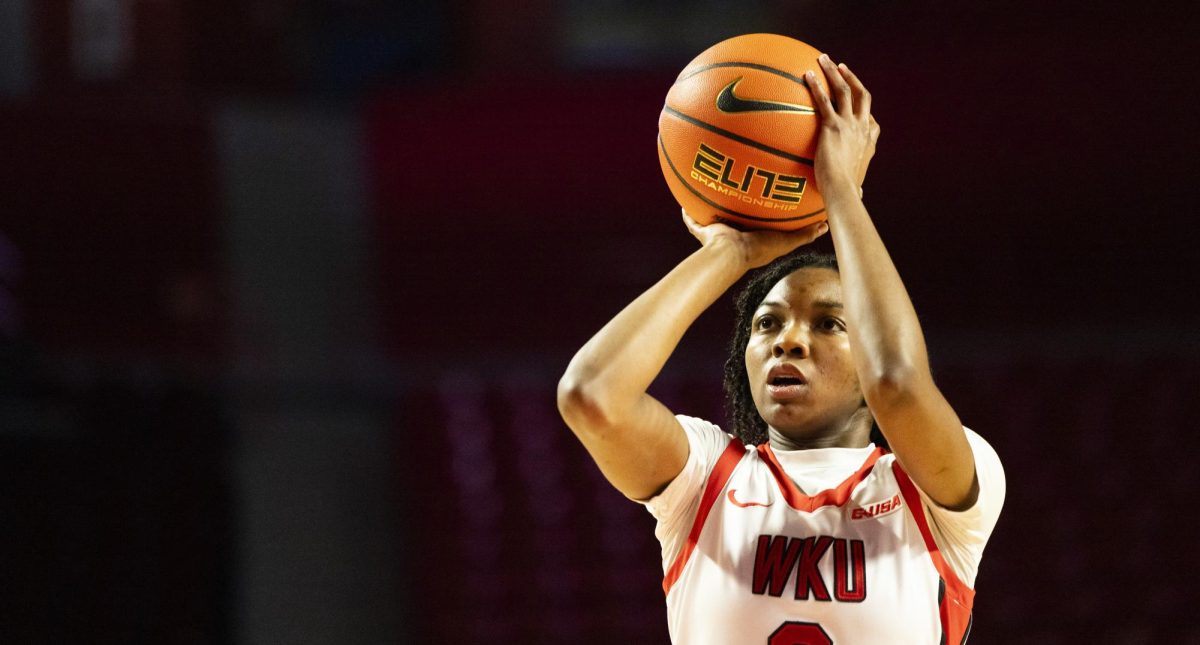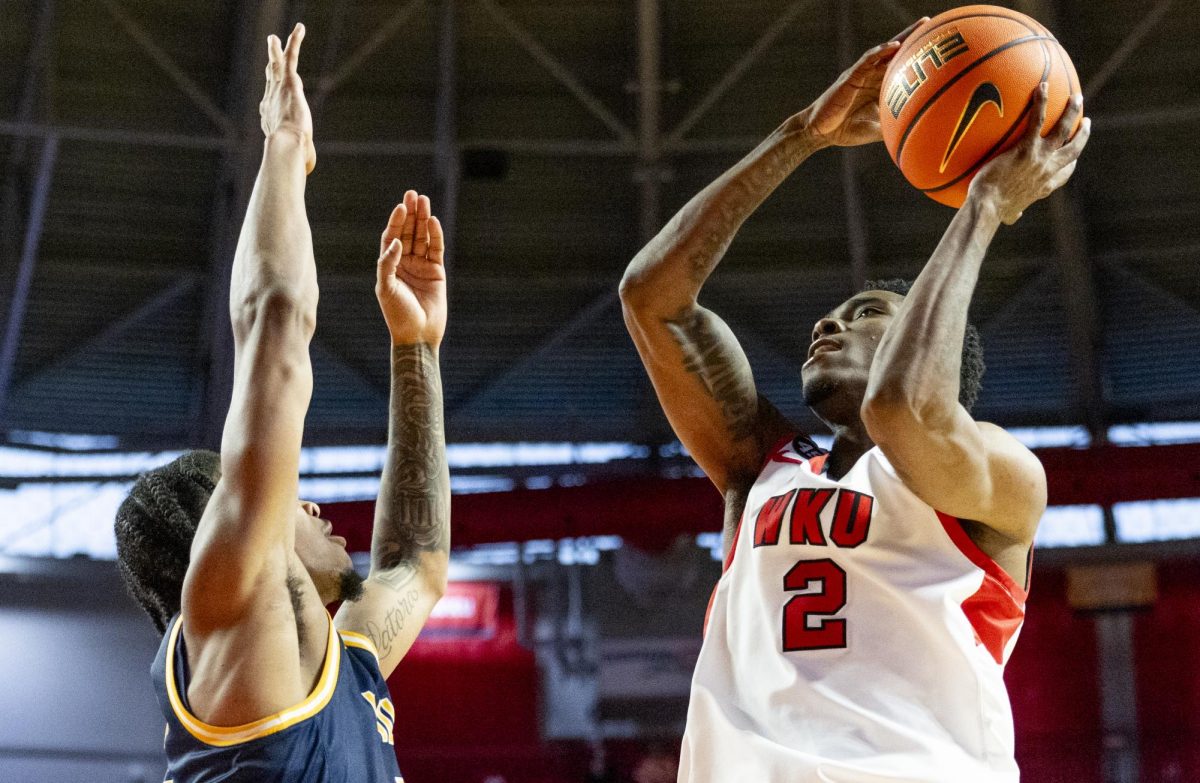The Big Picture: Looking back at the year that was for WKU football
December 27, 2016
With time winding down in the final quarter of the Boca Raton Bowl and my game story still in fragments with a lot of organizing left to do, something occurred to me as I was sitting in the press box at FAU Stadium one week ago: a lot of stuff happened in the WKU football program this year.
Much like the game I had just watched—a 51-31 trouncing of Memphis by the Hilltoppers—there were almost too many noteworthy events in the 2016 calendar year to keep up with, and the only way to truly reflect on it is to take a bigger step back and look at how far the program has come over the past half-decade or so.
After watching the Tops roll to their third bowl victory in as many seasons last Tuesday, it’s easy to forget that just seven years ago WKU was a nascent FBS program that failed to win a single game in the 2009 season, finishing with an 0-12 record under head coach David Elson.
It isn’t too uncommon for leniency to be granted within a struggling program that is coming off its first full season as an FBS member, but that wasn’t the case at WKU.
Elson was fired, and the decision by then WKU athletic director Wood Selig to make the head coaching change set a winning standard for the future that would become higher than anyone could’ve imagined at the time.
In 2010, former WKU quarterback Willie Taggart was hired to be the next head coach of the Hilltoppers.
From that point on, a school known historically for its basketball team was sent into a football craze.
Taggart led the team to consecutive 7-5 seasons from 2011-2012, and by the end of the 2012 season, he had a new job as the head man at South Florida.
As Taggart was on his way out, Todd Stewart was just getting started as the new athletic director on The Hill.
In just four years on the job, Stewart has continually pushed the bar higher with each move he makes.
In 2013, he hired Bobby Petrino when no one else would.
When Petrino left for Louisville after one season at WKU, Stewart gave Jeff Brohm a chance at his first head coaching opportunity.
That move led the program on a meteoric rise to new heights.
In three years, Brohm won 30 games, the first two FBS conference championships and bowl wins in program history, helped earn the school its first and only national ranking at the end of the 2015 season, and established an exciting brand of football that only furthered the program’s relevance on a national level.
It’s been 22 days since Brohm accepted a new head coaching job at Purdue, and the Hilltoppers’ season has been officially over for one week.
Four days remain in 2016, and now that we’ve taken a step back to look at the big picture, I return to my original point.
A lot happened this year.
Brohm escaped an offseason that featured his name being thrown around in head coaching searches all over the country to return to The Hill for his third season, which wasn’t guaranteed to be easy.
WKU was coming off its best season in program history, and the Hilltoppers were without a clear-cut replacement for all-time leading passer Brandon Doughty early on in spring practice.
It was easy to see that players like Taywan Taylor, Nicholas Norris and Forrest Lamp were primed for big seasons, and it wasn’t too crazy to imagine WKU competing for another conference championship before the season began.
But a lot of the things happened that weren’t necessarily predictable.
Mike White went into the season with zero snaps under his belt in a WKU uniform. He finished with 4,363 passing yards, 37 touchdowns and just seven interceptions.
Sophomore running back D’Andre Ferby was expected to pick up where he left off as the featured back after a productive freshman season, but a collarbone injury sustained in the season-opener sidelined him for the season, opening up more opportunities for senior Ace Wales.
Wales delivered, finishing the season with 1,621 rushing yards and 27 rushing touchdowns, catapulting him into second place in program history with 43 rushing touchdowns in his career.
The Hilltoppers started 3-3 after dropping a pair of heartbreakers to Louisiana Tech and Vanderbilt, losing by a total of four points combined in those games.
The road loss to La. Tech on Oct. 6 would be the Hilltoppers’ last of 2016.
Seven consecutive wins and eight weeks later, Brohm and company were hoisting another C-USA Championship trophy on Feix Field after a 58-44 rematch victory over La. Tech.
Two days after that, Brohm was headed to West Lafayette to be introduced as the new head coach at Purdue.
If somebody claims they saw all of that coming, I’d like to hear their explanation myself.
All of those who benefitted from the successes of WKU football in 2016 have a lot of people that came before them to thank.
Because it’s not too often that a team finishes ranked in the AP Top 25 just five years after joining the FBS and four years after a fan base is rather content with a 7-5 record on an annual basis. Expectations are double what they used to be.
When rumors and rumblings started to circulate two weeks ago that a young offensive coordinator from Notre Dame was likely going to be hired as the next head coach at WKU, I googled his name.
It turns out Wikipedia doesn’t have much on Mike Sanford Jr.
But after listening to Sanford’s introductory press conference a few days later when the move became official, I decided that it won’t be long before that page will need to be updated.
I remember the last time an offensive-minded coach was given his first head coaching opportunity at WKU. It turned out pretty well.
Regardless of how he fares, Mike Sanford won’t coach at WKU forever. One day he too will move on, and when the time comes to reflect, the same thing will need to be done in order to truly appreciate his time in Bowling Green.
The only difference is that the step back will be larger, and the picture will be bigger with a lot more details to consider.













